In our series on digital resources, Gunther Kunze extensively presented parts of the digital landscape available online for academics concerning themselves with the history and culture of the so-called „PALOP“, Países Africanos de Língua Oficial Portuguesa. A recent acquisition by the library of 6 posters and 17 pamphlets produced by the Acção Psicológica do Exército Português, a division of the portuguese military during the wars of decolonization, adds to the library’s small, but growing collection of materials from lusophone Africa.
These documents tell of the tormentful struggle for independence waged against ‚Estado Novo‘ Portugal and especially of its strategies to paint an inclusive picture of the late empire and its „overseas provinces“, while at the same time demonizing the participants of armed struggle against the colonial system. They complement the pamphlets described and republished in „A conquista das almas“ by José Pacheco Pereira, available in the library’s catalogue, and a short publication notice can be found here.
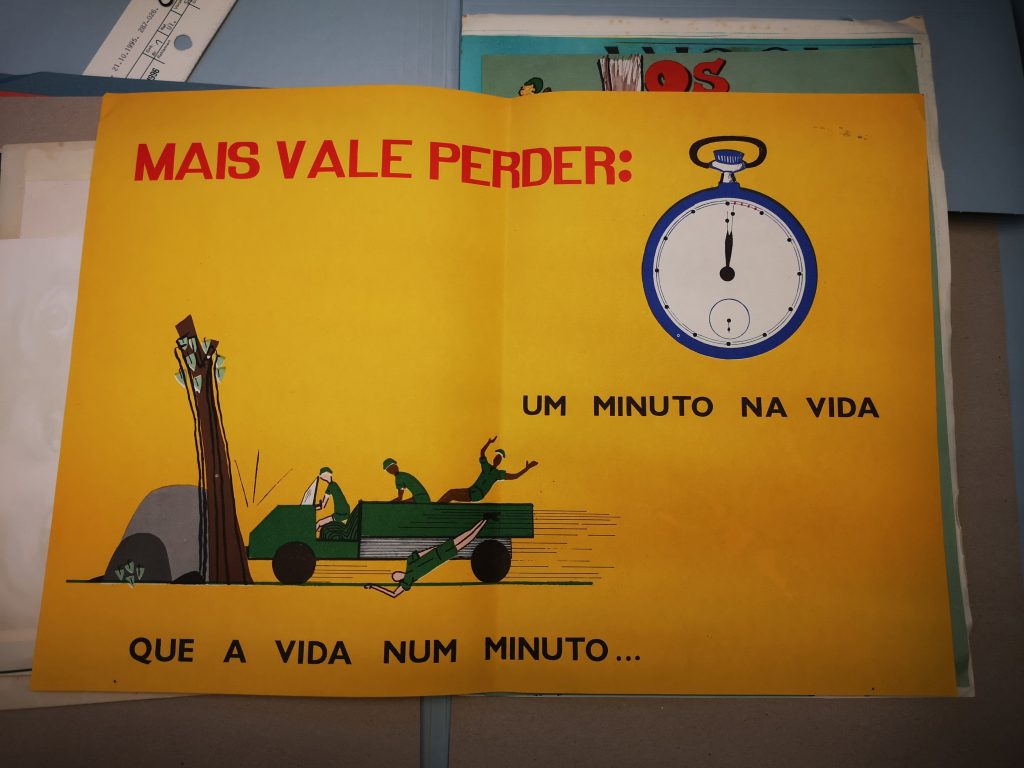
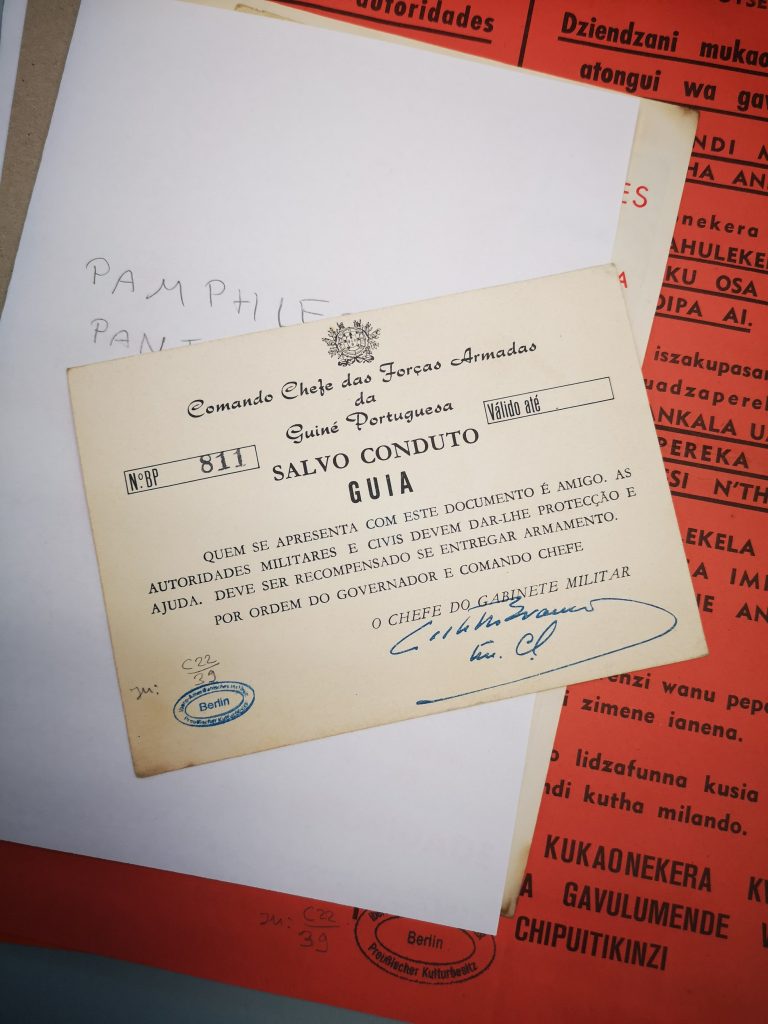
There are few resources online that describe psy-op during the wars of the late Portuguese empire. The Centro de Documentação 25 de Abril offers some insight as part of their information on propaganda efforts in the struggling colonies. The Acção Psicológica at the same time used propaganda leaflets common to conflicts of the 20th century, like the safe-conduct pass. These passes were widely used in bellical conflicts of the mid-century (for example in Vietnam) to assure surrended enemies safe passage behind the combat lines. Whether these passes actually held their validity is unclear and their application in assymetric conflicts with unclear distinctions between military and civilian personnel makes these practices all the more difficult.
Part of the material, mostly adressed directly at guerrilla members or sympathizers, is bilingual. While some of the posters seem to be written in Chichewa, others include Suaheli and other languages. The bilingual format hints at one of the major issues that the propaganda efforts confronted: national integration of the colonies into the framework of a single „Portuguese“ nationality of Portugal.
Quite noticeably, there are two major lines of propaganda applied: one arguing the futility of decolonial struggle, referring to the difficult circumstances of life in the guerrilla and supposedly superior firepower of the Portuguese army (a debatable question, at least after Western countries adopted a policy of embargos against Portugal, whilst the Liberation Movements received modern weaponry from both the USSR and Maoist China).
The other and maybe more complex line of argument tried to convince Angolans, Mozambicans and Guineans of their belonging to Portugal. One of the cornerstones of these efforts of the Portuguese Empire to integrate the colonies or at least their elites culturally, all the while maintaining a system of exploitation and white supremacy, was the so called Casa dos Estudantes do Império. As outlined in this article by Ana Naomi de Sousa and Sonia Vaz Borges, the creation of a center for students from the colonies in Lisbon lead to the exact opposite of the desired result: it built the networks that would later take leadership in lusophone Africa’s independence. The library holds a few of the historic works that were produced in the Casa dos Estudantes do Império, as for example „diálogo“ by Henrique Abranches, who would go on to become an important intellectual for independent Angola, or an anthology of „Poetas Angolanos“, or a „Cancioneiro Popular Angolano“.
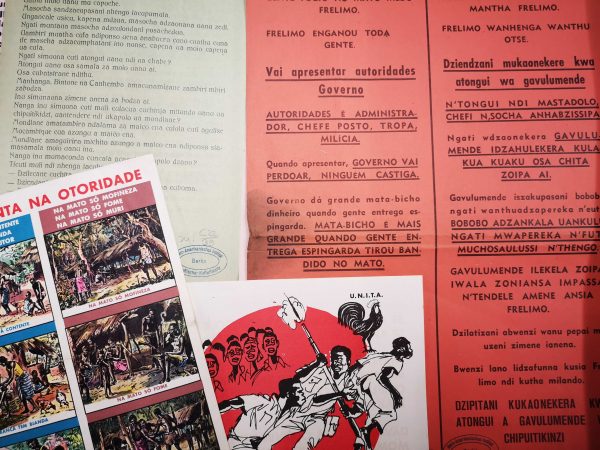
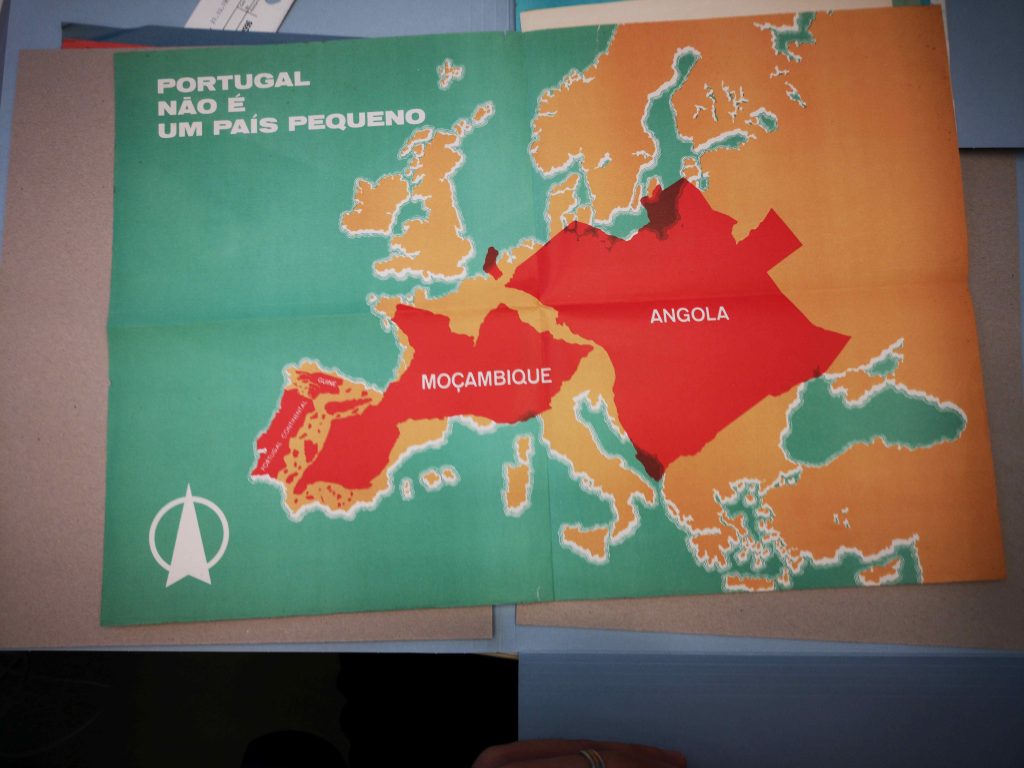
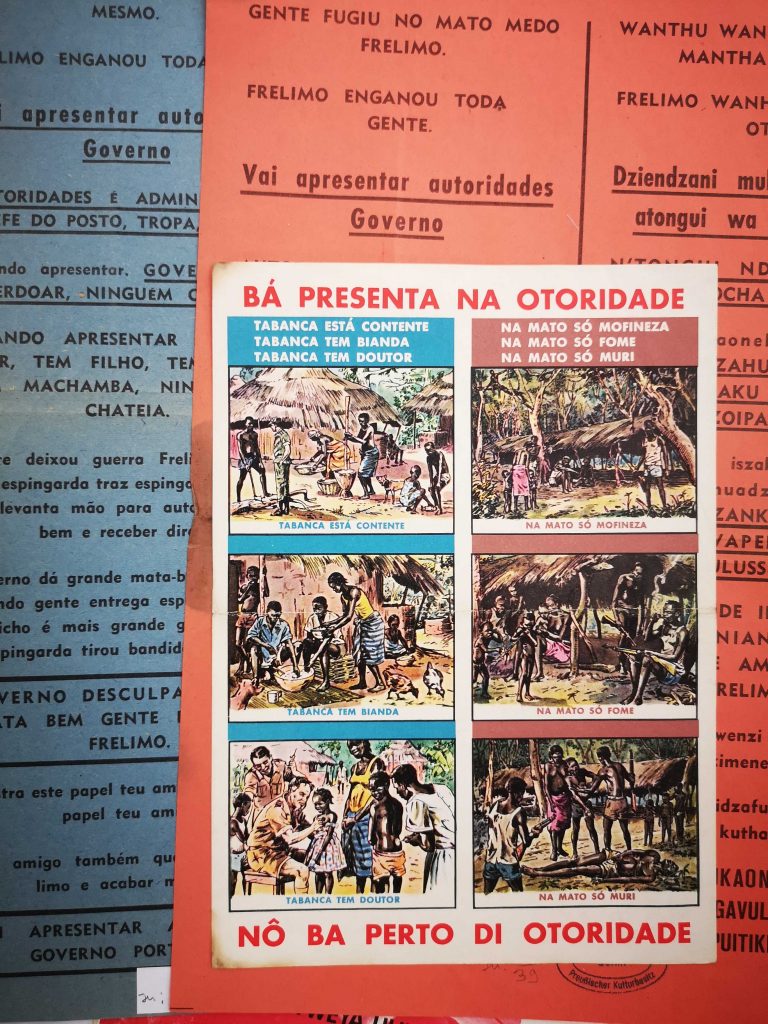
The materials are available through our catalogue for access in our reading room. A wealth of historical sources is also available online, for example through the archives of the casa comum, a well structured archive of documentation related to the historical period of decolonization, and the Arquivo Lúcio Lara (ATD), a collection of Lúcio Laras (Tchiweka)’s personal documents.
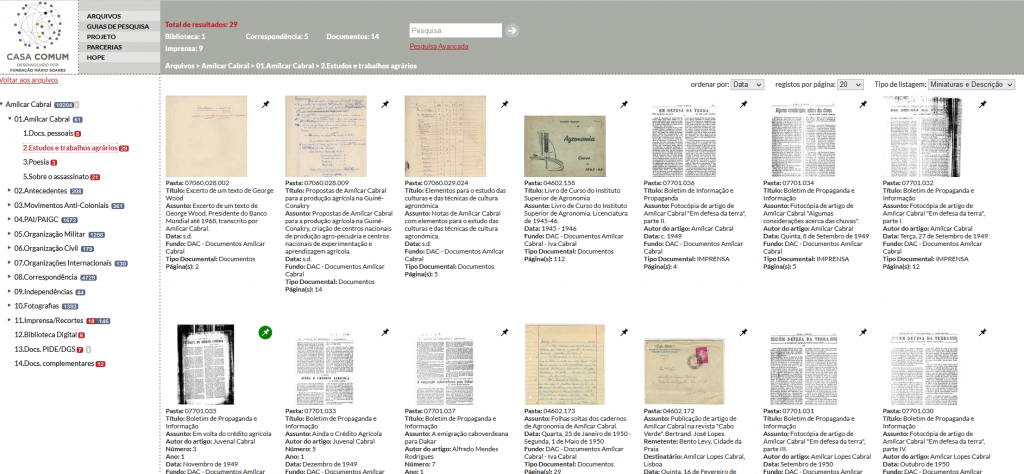
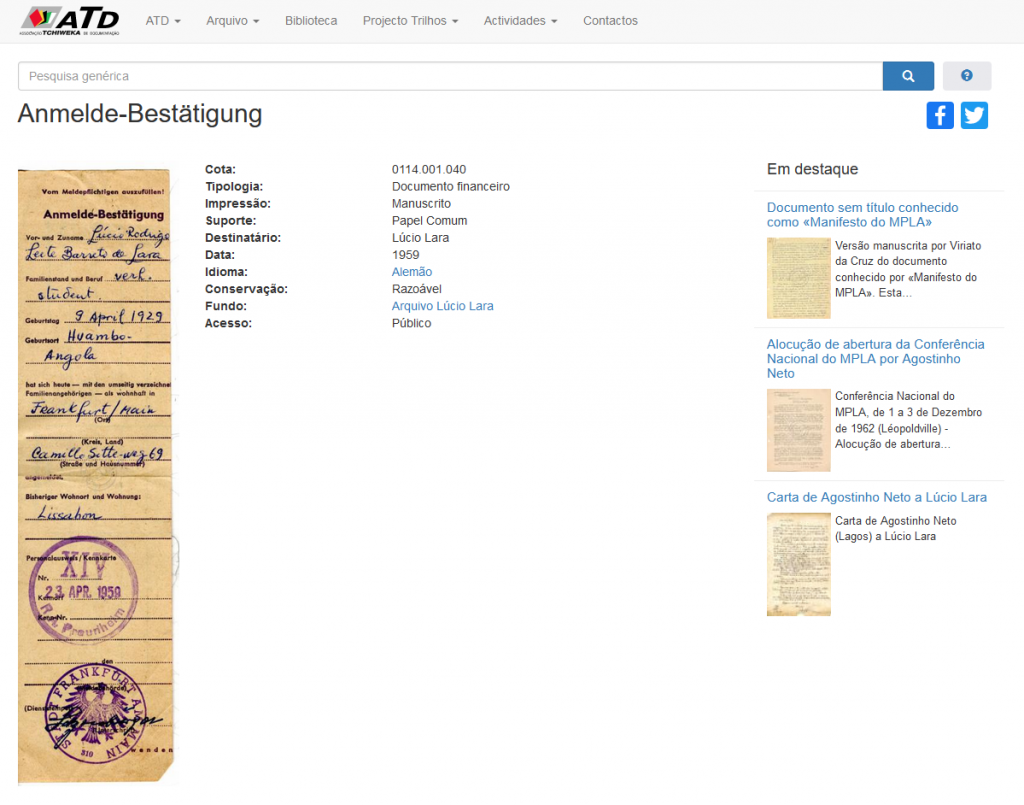
For further reading you might consider the following titles: „Histórias coloniais“, „A Luta pela Independência“, „Memórias do Colonialismo e da Guerra“ all by Dalila Cabrita Mateus and Amélia Neves de Souto’s „Caetano e o ocaso do ‚Império'“.


